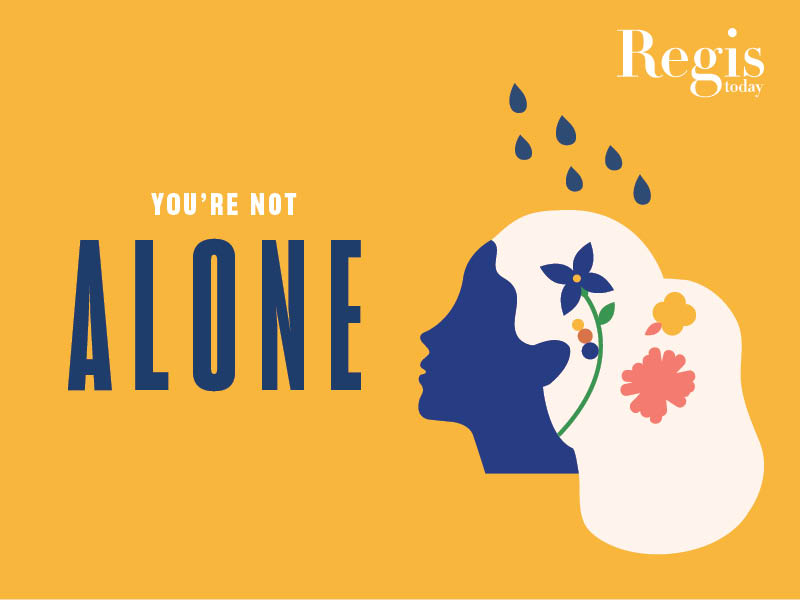
The National Institutes of Health reported that mental illnesses in the United States affect tens of millions of people each year. Yet the stigma of mental health issues often leads people to suffer alone.
Story by Kristen Walsh
Robert Spatzer ’19, CRNP, believes that one of the biggest hurdles to breaking the mental health stigma—negative attitudes toward people with mental health conditions or internalized shame—is a misinformed perception of the “healthy mind.”
“There’s a perception that everyone is supposed to feel good all the time and if you don’t, that’s abnormal,” says Spatzer, who is director of clinical and operations at WorldClinic and JobSiteCare. “The reality is that there’s a huge amount of undiagnosed and diagnosed mental illness. Mental health disorders across the spectrum are way more common than anyone realizes.”
Unfortunately, more than half of people with mental illness don’t receive help for their disorders, according to the American Psychiatric Association (APA). One common reason: “People avoid or delay seeking treatment due to concerns about being treated differently or fears of losing their jobs and livelihood.”
Thomas Kannon, DNP, PMHNP-BC, assistant professor and interim assistant dean of Graduate Online Nursing at Regis, agrees. The U.S. Navy veteran sees active duty and retired military personnel in his private practice in Virginia.
“It’s one of the most vulnerable populations, but you often can’t see the injury,” Kannon says of conditions like post-traumatic stress disorder and depressive disorders. “But because I was enlisted for 15 years, I have a basis of comparison. I know where a lot of them are coming from and what they had to go through.”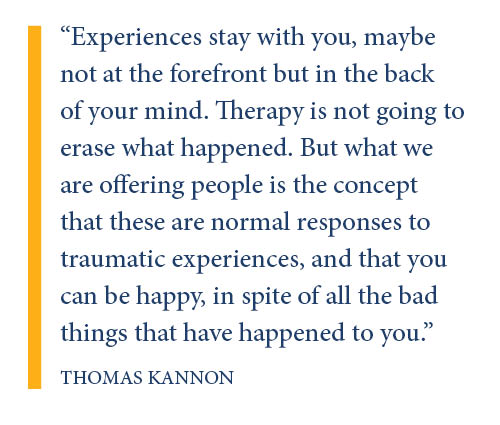
The National Council for Behavioral Health says that 30 percent of active duty and reserve military personnel deployed in Iraq and Afghanistan have a mental health condition requiring treatment. Less than 50 percent of returning veterans in need receive any mental health treatment. Military children, spouses, and other family members also suffer.
“Experiences stay with you, maybe not at the forefront but in the back of your mind,” Kannon explains. “Therapy is not going to erase what happened. But what we are offering people is the concept that these are normal responses to traumatic experiences and that you can be happy, despite all the bad things that have happened to you.”
Mental Health Influencers
According to Mental Health America, the number of people screening with moderate to severe symptoms of depression and anxiety has continued to increase throughout 2020 and remains higher than rates prior to COVID-19.
Clinical psychotherapist Sadé Callwood ’15, PsyD, says that a combination of events has influenced the mental health field. “Historically we focus on individual stories and experiences, but what’s happened this last year, between the pandemic and the murder of George Floyd, is that we’re all experiencing things at the same time. So there is a shift and an openness to look within. That self-reflection includes how people grapple with their race, culture, and identity.”
Callwood was toward the end of her Regis education (a bachelor’s degree in psychology) when Black Lives Matter began gaining attention—and it informed her career path in mental health.
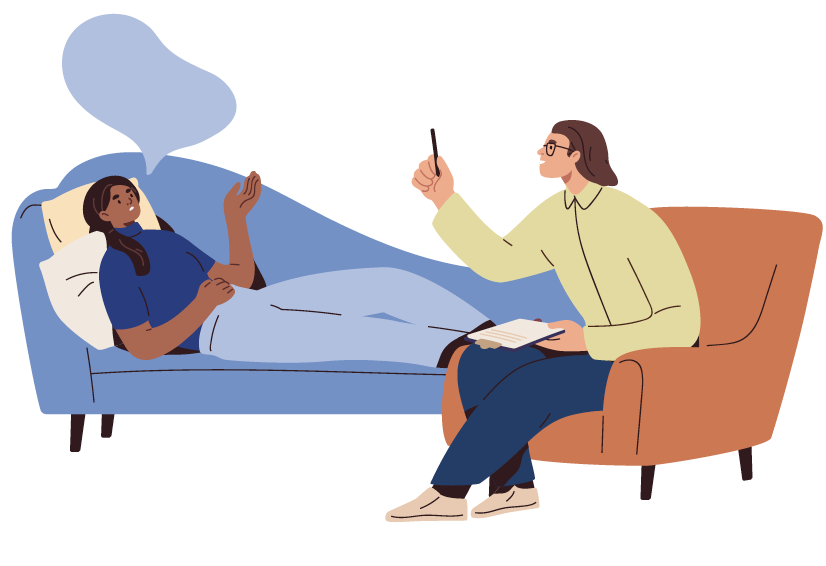 “Protesting in the streets isn’t for everyone, and I knew I could do important advocacy work behind the scenes,” Callwood says. “What better way than to integrate it with the work that I would be doing every single day.”
“Protesting in the streets isn’t for everyone, and I knew I could do important advocacy work behind the scenes,” Callwood says. “What better way than to integrate it with the work that I would be doing every single day.”
Stigma around mental illness is especially an issue in some racially and ethnically diverse communities, and it can be a major barrier to people accessing mental health services. Seeking professional help for mental illness may be counter to cultural values of strong family or emotional restraint, for example.
“People of color, particularly Black clinicians, only make up 5 percent of the population of psychologists,” Callwood says. “I identify as Puerto Rican and West Indian so I understand mental health stigma and also mistrust of the health care system that exists in Caribbean and other cultures. I want to be an agent of change, not only as a provider who looks like the people I serve, but as someone who can open the door for dismantling barriers to access to quality care. Representation matters.”
Rachel Koransky-Matson, DNP, APRN, FNP-C, assistant professor and clinical coordinator of Regis’ Online Family Nurse Practitioner Program, embraces both traditional Western medicine and more holistic approaches—including homeopathy, naturopathy, and aromatherapy.
“Working with underserved populations in the U.S., a lot of them come from different areas of the world that have natural health treatments,” says Koransky-Matson. “So it’s important for me to be open-minded and have conversations where they can be honest about what they’ve tried or want to try, and we go from there. It’s so beneficial to allow patients to have flexibility and choice when it comes to the types of treatment they receive.”
Missing Pieces
Unfortunately, Koransky-Matson sees how health disparities often disrupt treatment choice for patients. “In rural communities, there can be a three- to six-month period of waiting to see a provider—if one is even available. Some patients could have to drive three hours each way to see a provider or get to an emergency room, sometimes in life- or-death situations.”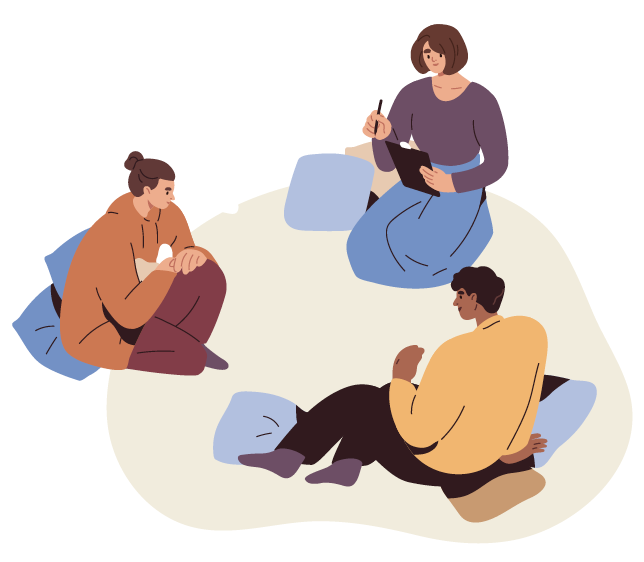
According to the APA, lower funding for mental illness research or fewer mental health services relative to other health care are examples of institutional stigma: more systemic policies of government and private organizations that intentionally or unintentionally limit opportunities for people with mental illness.
The uptick in mental health conditions because of COVID-19, Koransky-Matson says, “has definitely shown us where we are missing resources nationally for these patients.” She specifically cites a shortage of therapists, counselors, and providers to adequately provide care. And Spatzer agrees.
“As we are returning to some level of normalcy, you’re going to see some people’s mood improve and return to their baseline mental health, because that’s what we often see with adjustment disorders,” says Spatzer, who is board certified as a nurse practitioner in acute care and psychiatric medicine. “But as we have learned more about epigenetics we now understand that these types of traumatic or highly emotional events can lead to gene activation that influences our neurochemical response to stress. For a percentage of people this will develop into ongoing diagnosable mental illness, and there’s going to be a massive need for more providers.”
Integrative Approach
It was while working in a pediatric ICU unit and an emergency department that nurse practitioner LaTonya Carroll, PMHNP ’20, DNP, APRN, began to recognize a disconnect among medical and psychiatric services. So she decided to build upon her extensive medical education to help bridge that gap, particularly focusing on substance use disorder.
“We were in the midst of the pandemic and I decided I wanted to have more of a background in mental health, so I went ahead
and started the online Psychiatric Mental Health NP Certificate Program at Regis,” says Carroll, whose twin sister LeTisha Carroll, MSN is currently enrolled in Regis’ family nurse practitioner program. “I felt if I want to treat people with an addiction, I needed to know a little bit more about it than just what I learned from my family nurse practitioner program.”
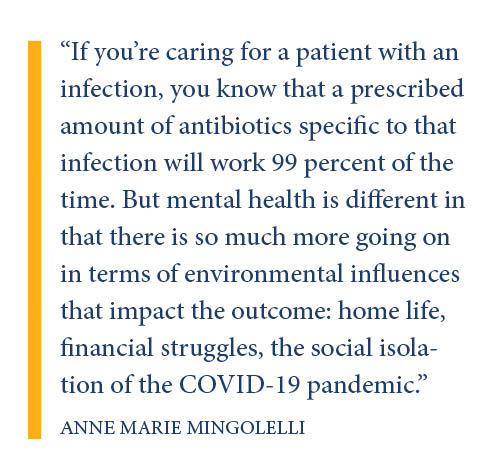 Carroll was a year into the Regis program in 2019 when she founded National Addiction and Behavioral Health Clinics Online (NABHCO) to help address the opioid epidemic—particularly in areas where patients don’t have access to care. The clinic specializes in medication management, treating depression, substance use and anxiety disorders, and addiction as well as primary care diseases.
Carroll was a year into the Regis program in 2019 when she founded National Addiction and Behavioral Health Clinics Online (NABHCO) to help address the opioid epidemic—particularly in areas where patients don’t have access to care. The clinic specializes in medication management, treating depression, substance use and anxiety disorders, and addiction as well as primary care diseases.
Assistant Professor of Nursing Anne Marie Mingolelli, DNP, PMHNP-BC, APRN-BC, also takes an integrative approach to medicine. “If you’re caring for a patient with an infection, you know that a prescribed amount of antibiotics specific to that infection will work 99 percent of the time. But mental health is different in that there is so much more going on in terms of environmental influences that impact the outcome: home life, financial struggles, the social isolation of the COVID-19 pandemic.”
But Mingolelli does see some upsides of the pandemic, including heightened awareness of mental health conditions and also a push for funding.
“Increased funding will allow more access for patients and training for providers,” says Mingolelli, a nurse practitioner certified to provide psychiatric services to children, adolescents, and adults. “The awareness has prompted discussions about offering services within K-12 schools or more collaboration between social workers and police departments, for example.”
Spatzer says the use of telemedicine has increased access to care, but is somewhat limited by restrictions on providing services across state lines. Due to COVID-19, some states eased behavioral health requirements for providers.
On another positive note, Spatzer believes that the pandemic will create a sense of community when it comes to mental health. “I think there are a large number of people who are going to have adjustment disorders during this, and when we come out of it they will have gained a new appreciation for the fact that everyone is susceptible.”
THE COUNSELING CENTER AT REGIS
The Counseling Center at Regis provides individual and group counseling, workshops, sports psychology counseling, and medication evaluation and management, currently by telehealth. In summer 2020, the center provided three times the normal amount of counseling appointments.
“I do think that we keep making progress in terms of reducing the mental health stigma, but it’s a gradual change,” says Regis Director of Counseling Kathryn Klickstein, LICSW. “There are more students who are reaching out and wanting to utilize our services, which is a good sign. But it is a tough decision for many of them to take that step.”
Klickstein says that one of the goals at the center is to reframe mental health services, including talking with students during first-year seminar. “Many people have this idea that you have to be really unstable to utilize our services, but we help students experiencing a wide range of conditions. Students come to discuss managing stress and anxiety, coping with difficult relationships, overcoming shyness or social anxiety, understanding identity, improving self-esteem, and managing mood issues.”
• To schedule a counseling appointment, students can call Health Services at 781.768.7290 or email counseling.services@regiscollege.edu
• Talk One2One (24/7 phone counseling for “in the moment” support) 1.800.756.3124
Mental Health Resources
SAMHSA (Substance Abuse and Mental Health Services Administration) National Helpline provides referrals to local treatment facilities, support groups, and community-based organizations. Callers can also order free publications and other information. 1.800.662.HELP (4357) or TTY: 1.800.487.4889
National Suicide Prevention Lifeline: 1.800.273.8255
Massachusetts Department of Mental Health: mass.gov/orgs/massachusetts-department-of-mental-health
Child Mind Institute is an independent, national nonprofit dedicated to transforming the lives of children and families struggling with mental health and learning disorders: childmind.org
Read more articles
Read the entire magazine online